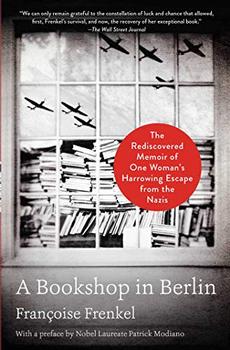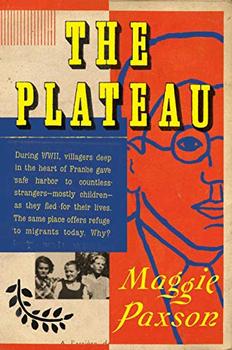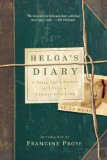Summary | Excerpt | Reviews | Beyond the book | Read-Alikes | Genres & Themes | Author Bio

The Rediscovered Memoir of One Woman's Harrowing Escape from the Nazis
by Francoise Frenkel"A beautiful and important book" (The Independent) in the tradition of rediscovered works like Suite Française and The Nazi Officer's Wife, the prize-winning memoir of a fearless Jewish bookseller on a harrowing fight for survival across Nazi-occupied Europe.
In 1921, Françoise Frenkel—a Jewish woman from Poland—fulfills a dream. She opens La Maison du Livre, Berlin's first French bookshop, attracting artists and diplomats, celebrities and poets. The shop becomes a haven for intellectual exchange as Nazi ideology begins to poison the culturally rich city. In 1935, the scene continues to darken. First come the new bureaucratic hurdles, followed by frequent police visits and book confiscations.
Françoise's dream finally shatters on Kristallnacht in November 1938, as hundreds of Jewish shops and businesses are destroyed. La Maison du Livre is miraculously spared, but fear of persecution eventually forces Françoise on a desperate, lonely flight to Paris. When the city is bombed, she seeks refuge across southern France, witnessing countless horrors: children torn from their parents, mothers throwing themselves under buses. Secreted away from one safe house to the next, Françoise survives at the heroic hands of strangers risking their lives to protect her.
Published quietly in 1945, then rediscovered nearly sixty years later in an attic, A Bookshop in Berlin is a remarkable story of survival and resilience, of human cruelty and human spirit. In the tradition of Suite Française and The Nazi Officer's Wife, this book is the tale of a fearless woman whose lust for life and literature refuses to leave her, even in her darkest hours.
Frenkel has a remarkably grateful spirit. She chooses to emphasize the kindness of strangers and friends that made her survival possible. A Bookshop in Berlin is an unusual, beautiful type of war story, one that is far less graphic and brutal than many others the reader may have encountered. Instead of violence, she turns her attention to the goodness that can illuminate dark times, the small and large acts of resistance that webbed together to shield her through years of dislocation and eventually helped her to safety...continued
Full Review
(754 words)
This review is available to non-members for a limited time. For full access,
become a member today.
(Reviewed by Jamie Chornoby).
 In her memoir A Bookshop in Berlin, Francoise Frenkel describes how Kristallnacht ("crystal night") was the impetus for her emigration out of Germany. Also called "the Night of Broken Glass" and the November Pogroms, the events that unfolded on November 9 and 10 of 1938 formed the first mass, violent, state-mandated action against Jewish people under the Nazi regime. For this reason, many consider it to be the start of the Holocaust. It resulted in the destruction of at least 7,000 Jewish businesses, 1,400 synagogues and countless Jewish homes. 30,000 Jewish men from major cities across Germany and parts of German-controlled Austria were deported to concentration camps.
In her memoir A Bookshop in Berlin, Francoise Frenkel describes how Kristallnacht ("crystal night") was the impetus for her emigration out of Germany. Also called "the Night of Broken Glass" and the November Pogroms, the events that unfolded on November 9 and 10 of 1938 formed the first mass, violent, state-mandated action against Jewish people under the Nazi regime. For this reason, many consider it to be the start of the Holocaust. It resulted in the destruction of at least 7,000 Jewish businesses, 1,400 synagogues and countless Jewish homes. 30,000 Jewish men from major cities across Germany and parts of German-controlled Austria were deported to concentration camps.
The purported cause of Kristallnacht was the assassination of ...
This "beyond the book" feature is available to non-members for a limited time. Join today for full access.

If you liked A Bookshop in Berlin, try these:

by Maggie Paxson
Published 2019
During World War II, French villagers offered safe harbor to countless strangers - mostly children - as they fled for their lives. The same place offers refuge to migrants today. Why?

by Helga Weiss
Published 2014
The remarkable diary of a young girl who survived the Holocaust—appearing in English for the first time.